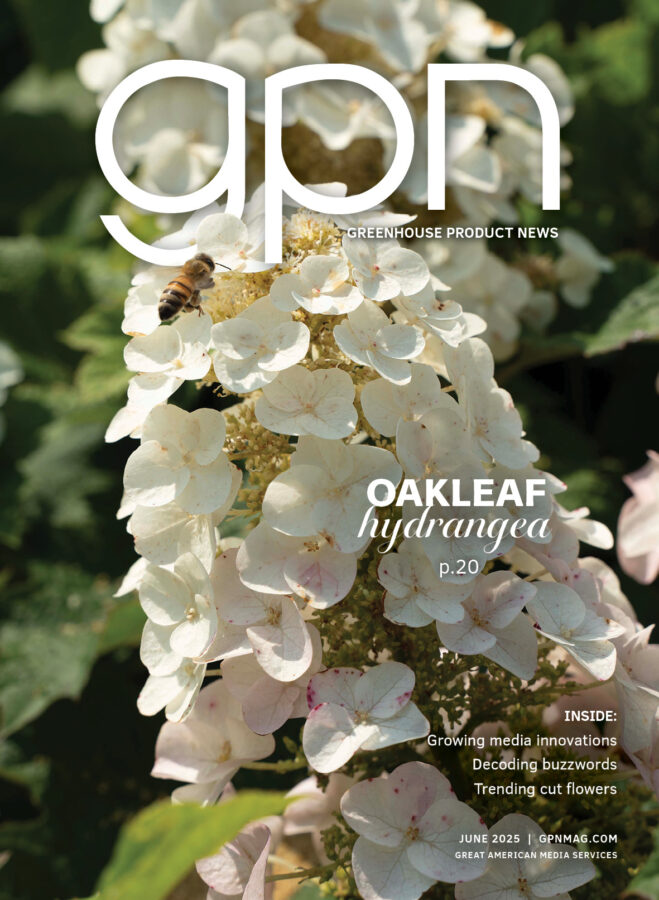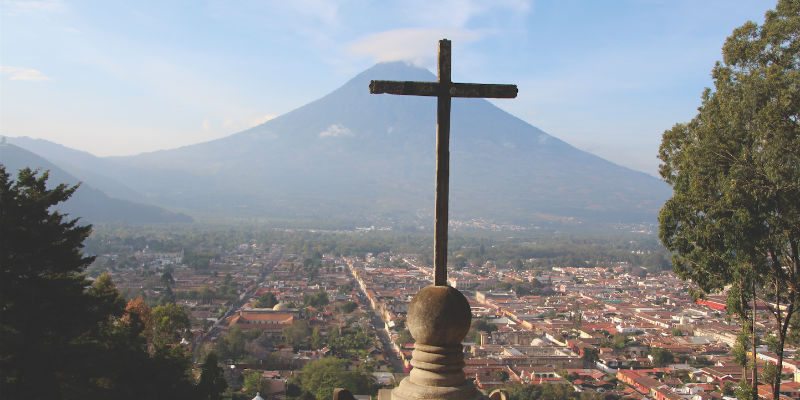
Nothing Ancient About Production in Antigua
Dümmen Orange recently expanded its presence in Guatemala by opening Antigua Flowers, a cutting facility focused specifically on perennials.
This spring, I embraced the opportunity to travel down to Central America in March to visit Antigua Flowers as well as some of the other Dümmen Orange production facilities: Oro Farms, also in Guatemala, and Las Mercedes, in El Salvador.
While I am familiar with the end product of these production locations, a vegetative cutting, I had no idea what is required to attain that outcome until visiting these production locations.
Acquisition and Transition
Dümmen Orange acquired Florexpo on July 1, 2015, and through it, Dümmen Orange became the largest producer of perennial cuttings on the market.
Florexpo’s facilities were located in Costa Rica, but following the acquisition, Dümmen Orange decided to move production to the former Ecke II farm, which was vacant since poinsettia production moved to Las Mercedes in El Salvador.
This is how Antigua Flowers was born.
Structural improvements came quickly, including all new poly cover, concrete walkways and raised benches throughout.
Juan Jose Loarca, farm manager of Antigua Flowers and his team immediately got to building stock.
“One of the best things about when a company is acquired is that you can mix the knowledge of the Florexpo side and the Oro side,” Loarca says. “One of the biggest things that we’re going to mix is assortment and a wide variety in some categories.”
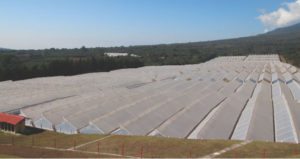
Everything seems to be going according to plan.
“The transition has been very smooth,” says Perry Wismans, managing partner at Dümmen Orange. “We made a plan that has two important components: a timeline and a roadmap to execute it.”
Dümmen Orange started taking over shipment in Week 14, the first week of April, while Florexpo slowly continues to transition out of production.
Both Dümmen Orange as well as its customers will see some advantages to having two farms so close together.
The main difference between Antigua Flowers and Oro Farms is elevation. Antigua Flowers is nearly 1,000 feet higher than Oro Farms, making it ideal for perennials, which thrive in the colder nights.
“There are always some exceptions to the rules. There may be some perennials that like warmer nights or some annuals like cooler nights, and we can facilitate that,” Wismans says. “That’s a very unique position. No other breeder/ producer has that flexibility.”
In addition to optimum climate conditions for each crop, customers will see benefits by combining shipping for annuals and perennials.
“For growers that’s an advantage because they’re getting annuals and perennials; products arrive on the same truck and customers receive both product categories at the same time,” Wismans says. “This limits complexity and increases operational efficiencies for the grower.”
The farms, however, still maintain separate identities and names even though all ordering is through Dümmen Orange.
These identities not only allow brokers to place farm-specific orders, but they also have been found to be good for the staff working there who identify with a specific farm.
A Focus on Sanitation
One of the things that impressed me the most at the Antigua Flowers visit — and the other two farms for that matter — was sanitation protocols.
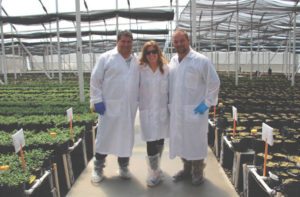
“The quality standards right now of what is expected from an annual cutting and a perennial cutting are quite different,” Wismans says. “Annual cutting production is set at a much higher standard in both production protocols and disease/phytosanitary testing.
“These are not the same standards, yet, in perennials, so we see that as a tremendous opportunity to match our standards of cleanliness in annuals to perennials.”
Antigua Flowers is separated into 31, 1-acre, segregated compartments, which are each assigned one of six protocols based on their sanitation statuses.
Protocol 1 is the most stringent of measures, so employees who are working in a house assigned Protocols 2 to 6 cannot return to a Protocol 1 house during the day, and this method operation continues all the way down the line.
If caught once moving opposite to the approved sanitation protocol, an employee is given a yellow card. If caught again, the employee is sent home.
Before entering a house, everyone — yes, all of us visitors included — had to undergo extensive sanitation procedures.
Everyone has to sanitize his or her shoes before entering through the first door. These shoes are then removed and replaced with boots. Hands and arms must be washed and sanitized before putting on gowns, aprons and latex gloves.
These gloves as well as any additional items to be used in the house, for example a camera, must then be sanitized as well.
Once stepping into sanitation solution another time, everyone can then enter the production house.
Employees never actually go outside a production compartment during the workday. A separate area adjacent to the compartment is set up as the cantina for meals (which enter through a closed compartment from the outside) and the bathroom is in a connected area as well.
Once in the house, there are three sets of knives, stored in disinfectant, on each bench, which are used only for that specific area.
Even the concrete blocks underneath the benches are wrapped in black plastic to prevent algae.
All of these protocols are created with one thing in mind: to have the healthiest, cleanest cuttings
out there.
“It doesn’t mean we will never have an issue, but even if we were to have an issue, it will be isolated,” Wismans says. “That’s very important for our customers to know.”
Going Green (Care)
Sanitation protocols at Antigua Flowers are one part of Dümmen Orange’s much larger Green Care program that is being implemented throughout the organization.
This program is built off of the principle, “Start Clean, Stay Clean.”
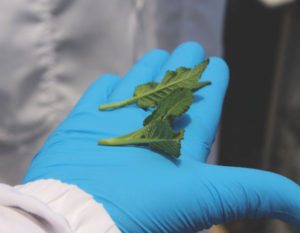
“Mirroring our annual program, we are working on a perennial Elite library, where we will have every product we’re producing maintained in our own Elite library with our own Elite standards,” Wismans says. “That’s a huge, huge project because we have more than 4,000 line items within Dümmen Orange, so we have to have 4,000 varieties in the Elite system.”
Dümmen Orange’s complete assortment includes some of its own breeding, others from global, leading independent breeders and still more from long-term agreements with Darwin Perennials and Bartels.
Product is regularly tested for a wide variety of pathogens.
Another component of the Green Care system is strict protocols for water. Dümmen Orange has installed a completely new water system since the farm was Ecke II.
Antigua Flowers is not a closed system, meaning it does not recirculate or recycle water. Well water is used, but every drop is disinfected before it can be applied in the farm. At least one week of water is also stored just in case.
Two brand new water silos, each one nearly 18,000 cubic feet, are sealed for irrigation.
The compartments of the facility not only enable separation based on Elite source or phytosanitary status, but also crop cultural requirements such as plant growth regulation, water and fertility.
The new fertilization system allows for sending a basic mix, which can be tailored for each compartment.
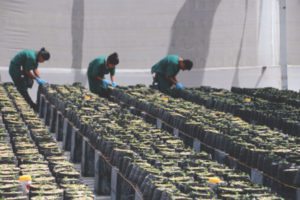
“The Green Care system is a point of differentiation between Dümmen Orange and other breeders/producers,” Wismans says. “We are investing heavily in our Elite library of plants by moving forward with a large scale development project in Rheinberg, Germany, to build a state-of-the-art Elite facility to house our Elite library.”
As for the focus on the environment, sustainability and employee treatment, Antigua Flowers, along with all of Dümmen Orange’s farms, are working towards MPS certification.
Las Mercedes in El Salvador has already been recognized for its MPS-GAP initiatives, proper training and safety protocols; its MPS-ABC initiatives, investments in electrostatic spraying equipment; and its MPS-SQ initiatives, including a scholarship program for the children of its workers, financial support for worker education and maternity leave.
Make sure to pick up the July issue of GPN to read more about my trip to Central America, and in particular the visit to Las Mercedes in El Salvador.
Abby Kleckler is retail editor for GPN. She can be reached at akleckler@greatamericanpublish.com.








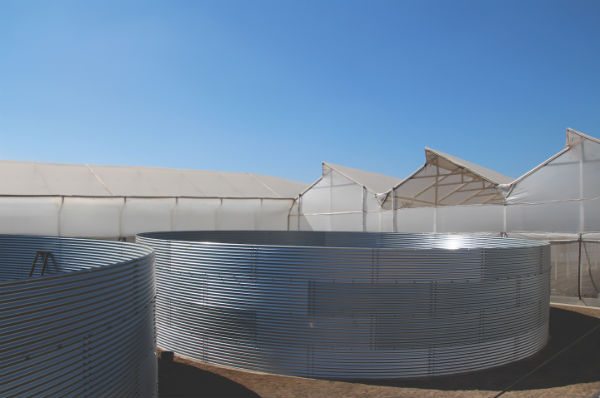
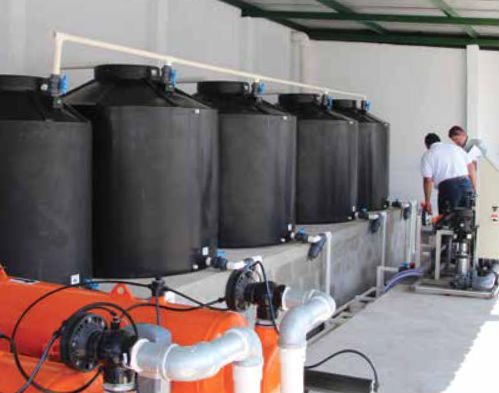
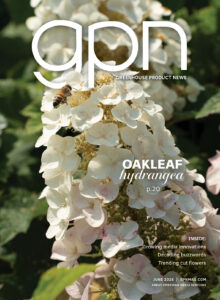
 Video Library
Video Library 

















